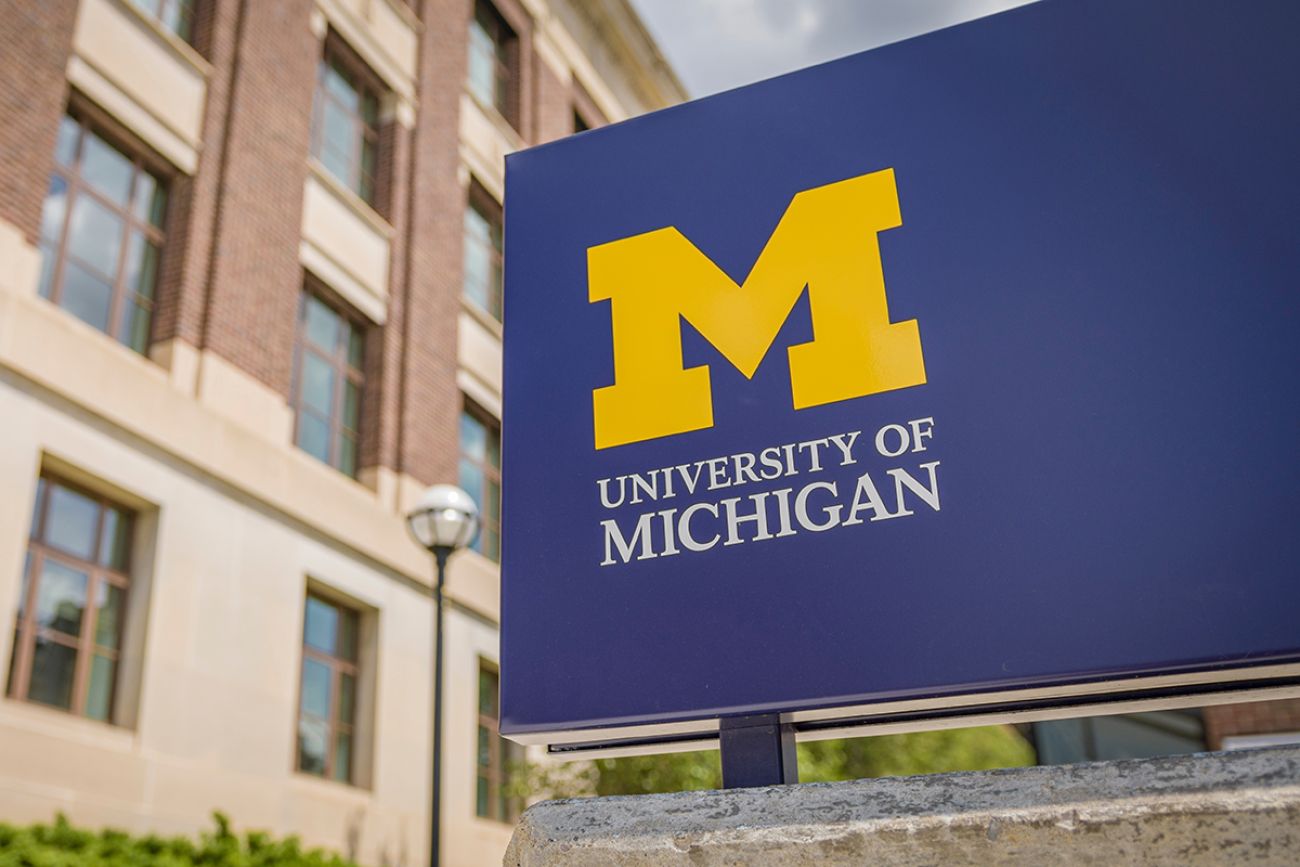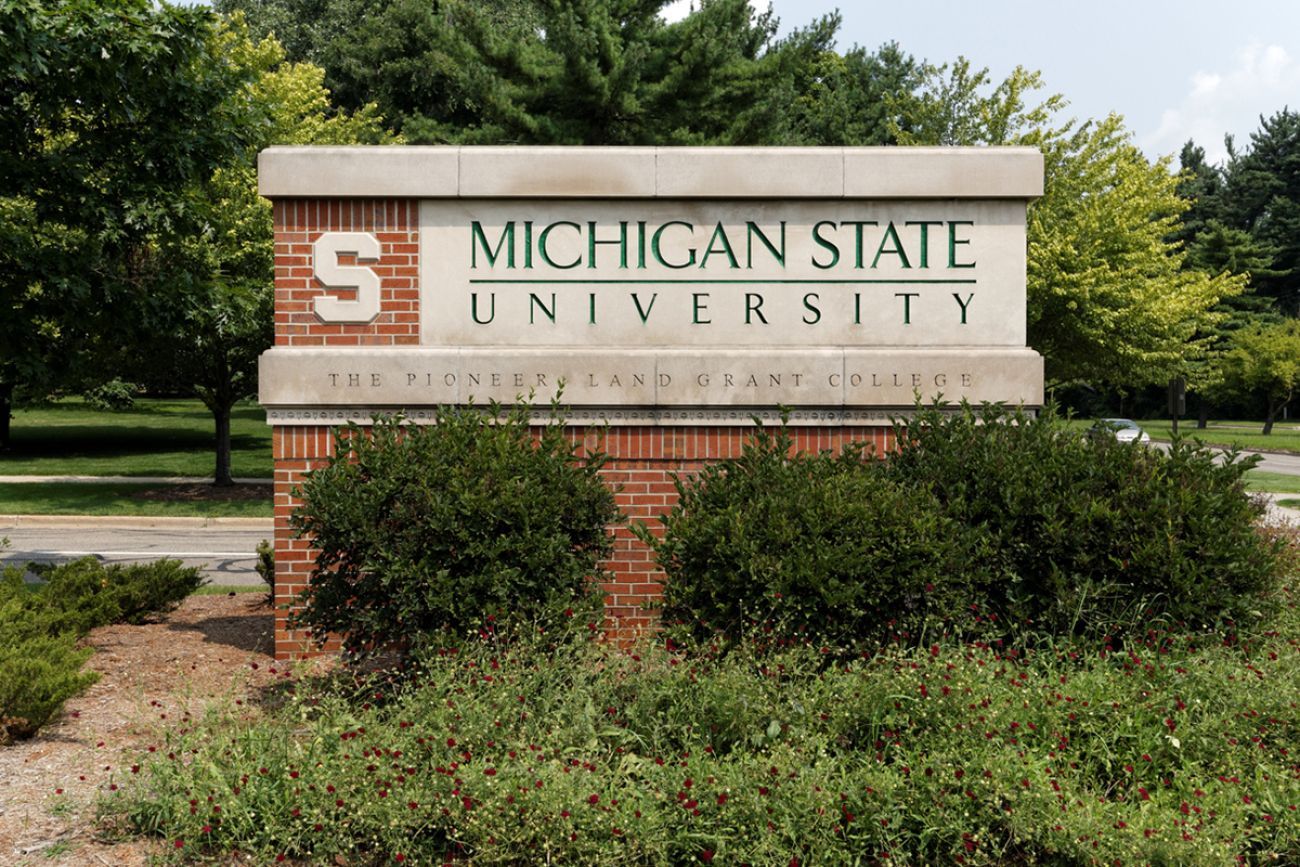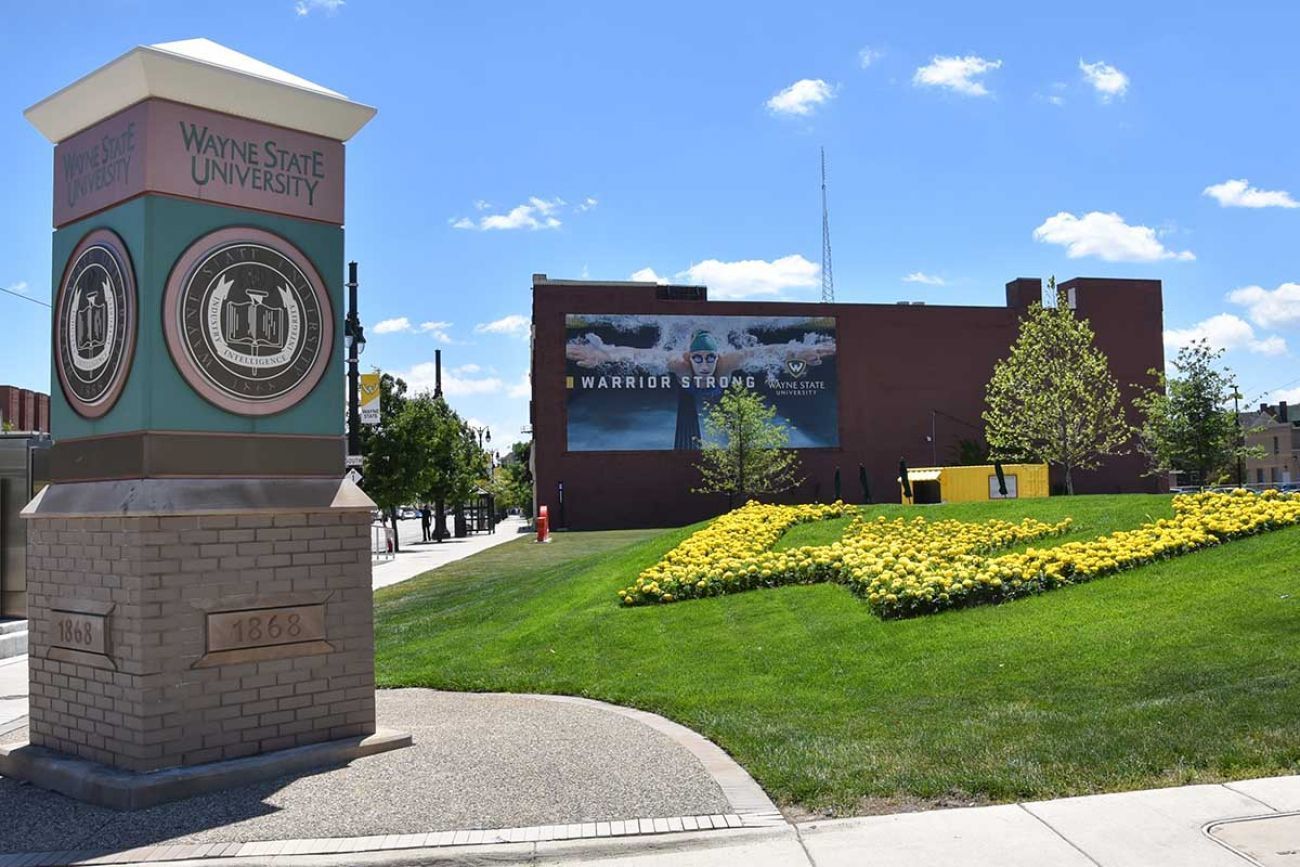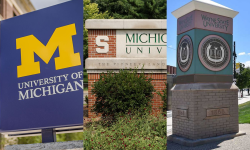Who’s running for Michigan university boards? Get to know the candidates
- Voters statewide determine who serves on boards of Michigan State University, University of Michigan, Wayne State University
- All three universities have Democratic majorities on their board
- All three university boards hired new university presidents since the pandemic
Nov. 5: Michigan live election results 2024: State House, Supreme Court, education boards
Michigan voters aren’t just electing a new president next week. They’ll also help shape the future of education in the state by selecting new members for the State Board of Education and Michigan’s three largest universities.
Read up on the State Board of Education candidates here.
The University of Michigan, Michigan State University and Wayne State University call their board members unique terms: regents, trustees or governors.
Regardless of their name, each board faces challenges, and members will work with new presidents at all three universities. U-M President Santa Ono started October 2022, WSU President Kimberly Espy took the helm August 2023, MSU President Kevin Guskiewicz started March 2024.
The Michigan Constitution mandates statewide elections for the university boards, a system some education have called to change because voters often don't know much about the candidates.
Allowing the governor to appoint board members at those schools could be more effective, said Tom Haas, president emeritus at Grand Valley State University, where he teaches leadership studies.
Related:
- Michigan universities lost first-year students. Decline was worse nationwide
- Michigan elections FAQ: Where Trump, Harris stand on education
- Trump wants to abolish the Department of Education. Is Michigan ready?
His advice to voters surprised that they get to pick the boards: “Do your homework.”
Here’s some information to get you started:

University of Michigan Board of Regents
Overview: There are six candidates running for two spots on the eight-member board. Ron Weiser, one of two Republicans currently on the board, is not running for re-election. Over the last year, Pro-Palestinian advocates have called on the university to divest from Israel or funds that benefit Israel in its war against Hamas. Board members have repeatedly refused to do so. Regents unanimously approved an “institutional neutrality” policy this month that states that university leaders will not issue statements on behalf of the university about topics that do not “directly relate to matters of internal governance.” The regents also make decisions about the University of Michigan - Flint and University of Michigan - Dearborn campuses.
Denise Ilitch, Democrat: An incumbent running for re-election, the metro Detroit candidate’s platform includes investing funds in the school and communities, “expanding affordable educational opportunities for all,” working with administration, employers and unions for a “thriving workplace,” investing in student mental health and wellness programs, “improving campus safety, “expanding athletics excellence and opportunity for all” including advocating for a varsity women’s hockey team, and advocating for a required course on “civil leadership.” Ilitch is part of the influential Ilitch family, which owns the Little Caesars Pizza and the Detroit Red Wings, and she has held various positions in the family’s business ventures, according to her U-M bio.
Carl Meyers, Republican: The Dearborn resident has said he would fight for “fair and affordable tuition to reduce the need for student debt,” “protect women’s sports from participation by biological males,” and “fight hate speech and protect free speech” at the university. Meyers is senior vice president of investments at Raymond James in Plymouth and has served on several boards, including the Michigan State Police Pension Board, according to his website.
Shauna Ryder Diggs, Democrat: The Grosse Pointe resident previously served on the U-M board. She has said her priorities include “affordable education programs,” supporting all three campuses, and ensuring a “campus culture that nurtures and protects students, staff, and faculty from discrimination and misconduct.” She is a dermatologist who completed her medical training at U-M, according to her website, and she is the founder of Cosmedic Dermatology. Also, she is a board member of Blue Cross Blue Shield Michigan.
Sevag Vartanian, Republican: The Novi resident’s priorities include having a “new era of accountability after the sexual abuse scandal,” moving toward “a more inclusive campus environment where conservative opinions and values can be freely expressed by students and faculty,” and re-examining how the university can lower costs for students. Vartanian has a financial background where he runs an assessment firm, called Vartanian Capital Management, according to his website.
Third party candidates: Andrew Chadderdon, a Libertarian, and Donna Oetman of the US Taxpayers Party, are also running.

Michigan State University Board of Trustees
Overview: There are eight candidates running for two spots on the eight-member board to replace Democrat Dianne Byrum and Republican Dan Kelly, who are not running for reelection. The university faces a host of challenges including its response to the aftermath of the Larry Nassar scandal and former Head Football Coach Mel Tucker. The Board also made news last year based on the conduct of two of its board members who were found to have “engaged in conduct that exceeds the scope of their authority” and “created a fear of retaliation amongst administrators and other MSU personnel.”
Rebecca Bahar-Cook, Democrat: The East Lansing resident has said she's running for trustee to “advocate for affordable tuition, maintain MSU’s research excellence, and promote community engagement among students.” Bahar-Cook has a fundraising and nonprofit background and has previously consulted on political campaigns including for the Whitmer Gilchrist Inaugural Committee, according to her website.
Mike Balow, Republican: The Plymouth resident has said he would prioritize keeping tuition “as affordable as possible for working families,” “engaging stakeholders so people don’t feel ignored,” getting the commitment to reinstate men and women swim and diving program, and “the protection of Women’s sports under Title IX,” and a “complete independent investigation that was never done” of the Nassar scandal. Balow also lists restoring trust in the board and more open culture around decision making. Balow previously served in the US Navy and serves in multiple state and national youth sports programs, according to his website. He has been an avid proponent of reinstating the swim and dive programs.
Julie Maday, Republican: The Novi resident’s priorities include creating a “culture of accountability and transparency,” “supporting women in sports,” “embracing diversity of thought and rejecting cancel culture,” “emphasizing education, not indoctrination,” solving problems with critical thinking and “practical solutions,” ensuring tuition is affordable “for all Michigan families,” and “prioritizing mental and physical health of students.” Maday previously served on Novi’s city council and the city planning commission.
Thomas Stallworth III, Democrat: The Farmington Hills resident wants to to “increase access to higher education at the university; provide the needed support to improve graduation rates; position the university as a top tier place to teach and work; and most importantly, ensure graduating students are on course for a fulfilling life trajectory," according to his website. Stallworth is the president of a consulting group that has worked with the Michigan governor’s office, the Michigan Democratic Party and Wayne State University, among others, according to his website.
Third party candidates: Libertarian Party nominee Grant Baker, Green Party nominee John La Pietra, US Taxpayers Party nominees Janet Sanger and John Sanger are running as well.

Wayne State University Board of Governors
Overview: There are nine candidates, including two incumbents, running for two positions on the eight-member WSU board. Similar to MSU and U-M, WSU also had an encampment about the Israel-Hamas war but police later dismantled the camp. The school had to look at “literally everything” it did and “reorient it toward supporting our students,” President Espy told Bridge Michigan and BridgeDetroit in a recent joint interview about student success. The rate of students finishing a degree or certificate within four years climbed from 23.4% to 50.1% in the last decade.
Michael Busuito, Republican: The Royal Oak resident is “committed to continuing to make Wayne State a destination for all students interested in receiving a quality education,” according to his website. He is a clinical associate professor surgery at WSU, a voluntary position, and co-founded a charity which provides surgeries to children with congenital defects free of charge, according to his campaign.
Rasha Demashkieh, Democrat: The Fort Gratiot resident’s priorities include “preparing students for meaningful employment,” ensuring the education is “affordable and accessible,” and supporting staff committed to student success. Demashkieh has previously served on the Port Huron Area School District board and the Michigan Civil Rights Commission.
Mark Gaffney, Democrat: Bridge Michigan could not identify a website for Gaffney but in a candidate statement to the student newspaper, The South End, Gaffney said the university “must remain the Michigan school for working class families” while continuing to “improve our quality of educational offerings.” He said students should be respected when exercising their free speech rights, and that “a safe campus welcoming to all must be provided.” His Wayne State bio states he is the previous president of the Michigan AFL-CIO and is a former board member of the Federal Reserve Bank of Chicago.
Sunny Reddy, Republican: The Bloomfield Hills resident has said his priorities include “fighting wokeness,” ensuring “tuition remains reasonable and that financial aid programs are robust,” supporting a merit-based system, investing in science, technology, engineering and math (STEM) programs, and working with leaders to “enhance safety measures and promote a secure environment” and “investing in projects that focus on community development and improving living conditions.” Reddy has a background in philanthropy with his website stating he raised money for COVID-19 relief, and boasts endorsements from state Republican Senators Jim Runestad and Michael Webber.
Third Party candidates: Libertarian Farid Ishac, Green Party nominee Sami Makhoul, William Mohr II of the US Taxpayers, Kathleen Oakford of the Natural Law party and Suzanne Roehrig of the Working Class Party are also running.
Michigan Education Watch
Michigan Education Watch is made possible by generous financial support from:
Subscribe to Michigan Health Watch
See what new members are saying about why they donated to Bridge Michigan:
- “In order for this information to be accurate and unbiased it must be underwritten by its readers, not by special interests.” - Larry S.
- “Not many other media sources report on the topics Bridge does.” - Susan B.
- “Your journalism is outstanding and rare these days.” - Mark S.
If you want to ensure the future of nonpartisan, nonprofit Michigan journalism, please become a member today. You, too, will be asked why you donated and maybe we'll feature your quote next time!






